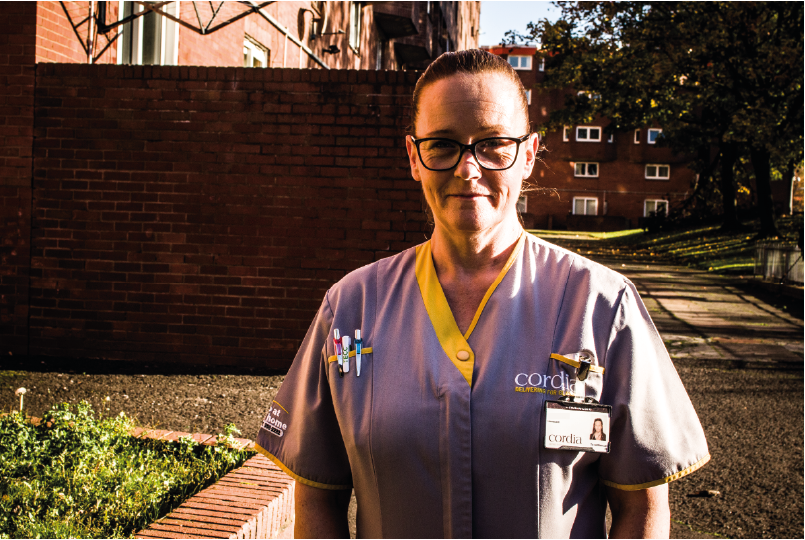Megan Fisher of GMB Scotland’s Women’s Campaign Unit makes the case for a significant minimum wage increase in Scotland’s social care sector
To some people, thinking back to the Thursday night clap for key workers will seem like a distant memory, but for others it may seem like yesterday. 2020 as year has been a contradiction with time appearing to stand still for those in the thick of the pandemic yet flying past for others.
The past 7 months have been incredibly challenging times, especially for those in the care sector who have suffered not only from tragedy in care homes and in care communities but from historic neglect, underfunding and, bluntly, exploitation of its workforce.
GMB care members have been fighting for the change our society so desperately needs and to ensure that the #clapforNHS and #clapforcarers will be more than a ‘token gesture’. It should and will serve as a springboard to build a sector where the value of wages accurately reflects the value of their work. That, after all, is what ‘essential work’ deserves.
GMB Scotland’s Fight For £15 campaign is aimed at fundamentally changing the way we look at social care and the people who are employed to deliver it by truly listening to the voices of the workers. It goes without saying that our care workers deserve a better deal than what they are currently getting.
So why £15? Well, to start with the UK average wage is £15/hour and care workers are worth at least an average wage. Key workers (essential workers) have pulled society through COVID-19 and those on the frontline in social care deserve to be recognised for the work they have done not only throughout the pandemic but for years before COVID-19. Not only does the workforce deserve to be properly invested in but all of Scotland would benefit from a more gender equal economy.
Simply put, investing in care is better for everyone.
Research shows us that not only does investing in care help reduce the gender employment gap by creating a significant number of jobs for women (and men), but it also generates opportunities in areas of deprivation, benefitting primarily the young and elder people in those areas who are recipients of care. (1)
Further, research shows that the more you invest in care, the bigger the returns compared to investing in other sectors such as construction. (1) For example, countries that are well known for having some of the best care systems such as Denmark have around 10% of their working population employed in the care sector.
If the UK were to invest similarly in care, so that 10% of the working population is employed in the care sector, we would create 2.2 million jobs. (1) Not only do they comparatively employ more people in care, but they also pay them better. A carers wage in Denmark is comparable to about 73% of a teacher’s wage and includes paying to train the workers.
It’s not so far-fetched to think that we could properly invest in carers wages to £15 an hour. We know the outcomes would create a better and healthier society, a more robust economy and would allow us to properly look after the most vulnerable. We also know that most of the public support investing in social care and would even pay more tax for it. (2)
If COVID-19 has shown us one thing, it’s that we cannot just #clapforcarers and other key workers, we must properly invest, value and support those working in the sector, for the benefit of everyone.
Megan Fisher, Assistant Organiser, GMB Scotland's Women's Campaign Unit
References:
1. https://wbg.org.uk/wp-content/uploads/2020/06/Care-led-recovery-final.pdf

